Soundtrack to a Fleeting Masculinity by Benjamin Schmitt reviewed by Matthew A. Hamilton Clare Songbirds Publishing House, 2018 14.00 USD 134 pages After reading Benjamin Schmitt’s third collection of poetry, Soundtrack To A Fleeting Masculinity, I was immediately drawn to the words of Fr. Dwight Longenecker: “In a world that seems increasingly meaningless, poetry helps you dig deep.” Schmitt’s poetry forces us to dig deep. With a clear and accessible voice, Schmitt introduces us to “this collapsing civilization” that we call the United States of America. And if you watch the news, read newspapers, or listen to the radio as I do, you, too, must be astounded by all the irrational speech on social media, the street violence, and the incompetence of our national leaders, what Schmitt calls “the archaic grime of the republic.” Most of this grime, I am ashamed to say, Schmitt contributes to men, although a few profane women occasion this poetry collection as well. The poems are composed of 80 numbered tracks. Reading the majority of them out loud reminds me of listening to a heavy metal band ranging against the harsh reality of men today: immature boys dominated by anger, sexual frustration, and hopelessness. In “Track 52,” for example, we learn that some kid named Chris discovers “his father smoking weed/at his workbench.” Understandably, Chris, given no other direction, ends up “with drunkenness and a metallic smell/that could almost be seen in the dark mind.” Additionally, in “Track 53,” we discover three disturbing individuals: a husband that “enjoyed the beatings,” a boyfriend, after watching what seems to be hard core porn, enjoys “slapping her during sex,” and a female same sex couple absorbed in an inordinate relationship “in cloaks of arm fat.” “Track 62” an all too familiar scene of a school shooting: “his cherished bullet was in the barrel/light of God burst.” This grime also manifests itself in America’s politicians, those individuals who are supposed to be exemplars of civility, professionalism, and ethical standards, but often submit to unruly desires, or make reprehensible and, sometimes, risky decisions. In “Track 35,” Schmitt opines how he feels about contemporary politicians: “The Democrats are really donkeys/and the Republicans are really elephants” And again, in “Track 54,” the manipulative politician wants us to believe he’s working for the public’s interests, but what he really wants to do are things like shutting down “every public library and make them brothels filled with/sexy librarians.” The crux of Schmitt’s latest collection can be found, other than in the title of the collection itself, in “Track 13” and “Track 68,” what Schmitt’s calls a “fleeting masculinity.” In other words, many men today are not men at all, but immature little boys unwilling to face life’s responsibilities. All is not lost, however, according to Schmitt. In “Track 55,” he writes: “The United States is a landscape/seeking reconciliation.” In other words, most people living in the US are good people and want to do their part in keeping their country strong and prosperous by getting rid of corruption and building better leaders. And who may be the voice of the people? “Track 78” provides an answer: “maybe poets give/dignity to the blackness.” Schmitt’s words give meaning to a meaningless world. He provides hope to generations of young Americans whom have lost hope. Thomas Merton wrote: “Art enables us to find ourselves and lose ourselves at the same time.” Perhaps by losing yourself in this beautiful and timely collection, you will find, as I have, and as Schmitt promises in “Track 80,” “the full measure of hope.” Reviewer's BiographyMatthew A. Hamilton holds an MFA from Fairfield University and a MSLIS from St. John’s University. He is a 6-time Pushcart Prize nominee. His stories and poems have appeared in a variety of national and international journals, including Atticus Review, Coe Magazine, Noctua Review, Burnt Bridge, Boston Literary Magazine, Cha: An Asian Literary Journal, Muddy River Poetry Review, and Tuck Magazine. His chapbook, The Land of the Four Rivers, published by Cervena Barva Press, won the 2013 Best Poetry Book from Peace Corps Writers. His second poetry collection, Lips Open and Divine, was published in 2016 by Winter Goose. He and his wife live in Richmond, VA.
Kym Cunningham's New Release 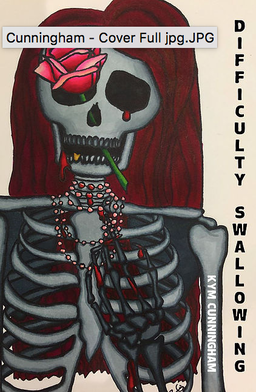 Check out this new release by Lift Every Voice contributor Kym Cunningham! Pre-orders available. Headline PoetryHeadline Poetry is a sister project of Line Rider Press, and includes current event inspired poetry and other radical artistic commentary. The sections of this newspaper style e-publication include:
Check them out! My Coney Island by Susan E. OringelReviewed by Charles Rammelkamp “My Coney Island” Poetry Finishing Line Press, 2019 $14.99, 42 pages ISBN: 978-1-63354-946-7 Dedicated to the memory of her parents, Robert and Beverly Oringel, Susan Oringel’s My Coney Island re-creates a vital part of the poet’s past growing up in a loving Jewish family in post-war Brooklyn. As she writes in the final poem of the collection, “My Coney Island”: “In dreams the only sound I hear is the surf’s roar, creation’s bray, white-fingered, looming waves grabbing me back to the avenues, Surf, Neptune, Mermaid, land where my parents played and I began, begin again. This poem is like the back cover of a book that contains her memories, the front cover – the initial poem – one called “Song of Coney Island,” in which she speaks fondly of returning to that long-ago Coney Island “where my / grandpa still fishes on the pier and Grandma grinds carp / for gefilte fish.” The poems between the covers, all tinged, inevitably, with a kind of nostalgia, include glimpses of her mom and dad as healthy, vital people (“Not Just Any Fool,” “My Father’s War,” “My Father’s Workshop” focusing on her father; “La Vie en Gris,” “Chopped Chicken Livers” and “Mother Love” on her mother). They also how them as they are dying, felled by cancer and a brain tumor (“Pink Balloon,” “How the Body,” “House,” “Struck,” “Last Days,” “The Last Lunch”). Inevitably there are reflections on the fleeting nature of existence. “Playing on the Beach” is a poem about the painter Robert Marsh’s depictions of Coney Island, “a sea of people escaping Depression’s end, the war, / and city heat.” Marsh’s paintings of Coney Island and Greenwich Village “displayed flesh and pleasure, like the Parisian dancers and prostitutes / painted by Degas and Toulouse-Lautrec.” They capture glimpses of innocence, before we are “tethered.” But aren’t we all tethered? First to our own bodies, then to others, to life, and finally to death, as the more vaguely painted, surrounding bodies suggest, muscled but fading from the scene. The other beach-goers, the museum notes, with their “muscular and frieze-like postures suggest the bacchanalian celebrations painted in classical times.” Yes, even the ancients craved love and ecstasy, escape from what was, is, surely waiting. You can’t avoid death. But in poems like “My Milosz Dream” and “Mom and Dad Barbeque in Heaven” she envisions precisely this “re-creation,” if only in memory and verse. “And for a moment,” the poem concludes, “each of us / they loved on earth feels inexplicably blessed.” But it’s Oringel’s skill with language that truly delights. It’s on full display in the poem, “Olive Juice.” I love alliteration’s tricky licks and the ahs of assonance – time to relax – delicious fricatives and glottal stops. The blunt flat hammers of stab and shit. Those Anglo-Saxons really knew their, er, stuff, and the polysyllabic latinates aren’t too shabby… She goes on to observe that “olive juice” said to someone across a room sounds like “I love you.” “And no matter how nicely someone /says my full first name, it always sounds like Mother scolding.” Biography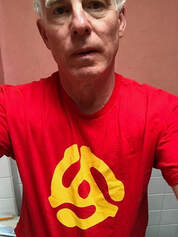 Charles Rammelkamp is Prose Editor for BrickHouse Books in Baltimore and Reviews Editor for The Adirondack Review. A chapbook of poems, Jack Tar’s Lady Parts, is available from Main Street Rag Publishing. Another poetry chapbook, Me and Sal Paradise, was recently published by FutureCycle Press. An e-chapbook has also recently been published online Time Is on My Side (yes it is) –http://poetscoop.org/manuscrip/Time%20Is%20on%20My%20Side%20FREE.pdf The Feeder by Jennifer Jackson Berry Reviewed by Paul David Adkins The Feeder Jennifer Jackson Berry YesYes Books © 2016 978-1-936919-47-5 $18 (https://www.yesyesbooks.com/product-page/the-feeder-by-jennifer-jackson-berry) Autopsy of Post-Traumatic Guilt: Loss and Non-Redemption in Jennifer Jackson Berry’s The Feeder “I lost our baby.” Jennifer Jackson Berry’s speaker opens her debut, full-length poetry collection The Feeder with a matter-of fact confession, terse yet deceptively complex. Conversely beautiful and shattering, this simple sentence answers three simultaneous questions: “Who lost the baby? I did;” “Who did it belong to? Both of us;” and, “Whose fault is it? Mine.” Because, in The Feeder, it is always the woman’s fault: the miscarriage, the weight gain, the relationship problems. And it is upon this brilliant opening sentence that Berry builds her book. The cover of The Feeder, entitled Didymus, by Brenda Stumpf, perfectly exemplifies the conflicts which Berry’s speaker faces. From a distance, one can see two empty dresses facing opposite directions. Or is it one dress halved, containing a Matroyshka-like rose at its center? Perhaps, though, as seen from above, a woman looks down at her thick legs. However a viewer interprets the cover, the topics of body image and emptiness fill the collection. At an autopsy, the coroner must ascertain the cause of death through complete examination of the body. In The Feeder, the speaker escorts the reader through the collection wound by wound. Miscarriages (14 are cataloged in “I Lost Our Baby”) punctuate the volume like buckshot holes. In “I Did Things for the Stories,” the speaker confesses, “We eat what’s gone / bad together, / / the dead, the dying, / the never-born.” She observes in “Lost & Found Love Poem with Oranges and Trash,” during a moment of wracking post-traumatic stress, “. . . when I get home / the sweet fruit are buried in the trash.” The miscarriages and losses are synonymous with weight gain and eating disorders. So joined are the notions, the speaker reveals that women become the meals themselves, in “Writing the Fat Girl,” “My Offal Honeymoon,” and “Fat Girl Has Regular Sex.” In Jessie Carty’s 2011 collection Fat Girl, the speaker explores the idea of weight gain and potential promiscuity. She writes in “Fat Girl in the OB / GYN,” “Mom told the doctor I needed the pill. / She was sure my love / / of Twinkies would translate / to my fat thighs opening for any touch.” Both Carty’s and Berry’s speakers view the body through a cold, analytical lens. The Feeder observes, in “Another Poem About Infertility,” “The body creates new, / until it doesn’t.” Meanwhile, in Fat Girl poem “Fat Girl on Grooming,” Carty’s speaker observes during toenail clipping, “. . . She / can even reach the right foot as long as she leaves / her right breast dangling between her legs.” The body is, to both poets, an item of utility. As The Feeder advances, the speaker explores the unfair responsibilities laid upon a woman regarding the success of a relationship. She must maintain appearances (“The Trouble of Curls”), provide sexual gratification (“x = feathers, y = boards”), attempt to solve the couple’s fertility issues (“The Infertile Couple”), and feel guilt for all failings, both in intimacy and pregnancy (“Contemplating a Gift for a Pregnancy Announcement”). These unrealistic expectations foster an atmosphere of perpetual insecurities regarding pregnancy, sexuality, and marriage. “Post-Miscarriage: Day 186” provides an extraordinarily poignant example of how a woman forges a monument to personal grief and loss through forgetting to cancel certain pregnancy-related notifications and subscriptions after her miscarriage. Berry’s collection hinges on the unsettling surprises of what constitutes loss and grief within the basis of a modern marriage. As with the coroner examining every physical aspect of a corpse, Berry’s speaker navigates the very lifeblood of what makes a relationship so difficult when framed by disappointment, guilt, and uncertainty. And, as the author closes the volume, the speaker again experiences expectancy of a child, ending with a stunning end to the narrative arc the poet has so carefully crafted through the book. And it is with this close that Jennifer Jackson Berry so carefully cradles the dead and living side-by-side in her gentle arms. Works Cited Berry, Jennifer Jackson. The Feeder. Portland, OR: YesYes Books. 2016. Carty, Jessie. Fat Girl. Alexander, AR: Sibling Rivalry Press. 2011. Biography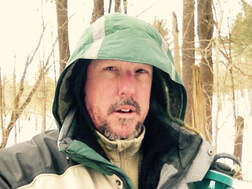 Paul David Adkins lives in Northern NY. He served in the US Army from 1991-2013. Recently, he earned a MA in Writing and The Oral Tradition from The Graduate Institute, Bethany, CT. He spends his days either counseling soldiers or teaching college students in a NY state correctional facility. Introducing our Social Media Manager We are delighted to have on board Justene as our Social Media Manager! Justene will be at the helm of our Twitter, Instagram, and Facebook accounts to help support our contributors and the poetry community. Please welcome her :) Justene is a queer, fledgling author from Canada working on her first poetry manuscript. She is a voice actor as well and has made appearances on a number of podcasts. You can find her on ko-fi [ http://ko-fi.com/jdgwrites ] and Twitter @gee_justy Stale Bread and Coffee by g emil reutterReviewed by Charles Rammelkamp “Stale Bread and Coffee” Poetry, Alien Buddha Press, 2019 $10.50, 66 pages ISBN: 978-1093326017 Rooted in Philadelphia, g. emil reutter’s poems evoke a post-industrial America whose better times are in the rearview mirror. As the very title of the collection suggests, the joy has mostly gone cold, hard and musty. The title poem begins: He lives in a house in a neighborhood that has been forgotten. The only visitors are the mailman and the trash truck. He waits for the stale bread to toast reheats yesterday’s coffee, listens to the silent telephone. Bleak is the first word that comes to mind. Yet there is a strong bond to and love for Philadelphia, the “Cradle of Liberty,” where these poems take place. The first hint, for me, comes in the second poem, “Melting,” which conjures up a hot summer day in the city. The last line reads: “water ice dripped on the warm cement.” Water ice! The confection’s sold everywhere by streetcorner vendors, but I think only in Philadelphia does it go by that name, a frozen treat flavored with juices – cherry, mango, lemon, blueberry. Time and again, reutter locates these poems, “on the corner of 30th and Market,” “on the corner of 13th and Chestnut,” on Kensington Avenue in rugged North Philly, or in a memory of Roxborough High School. The poem “16 Miles” describes a commuter train “passing graffiti / scarred bridges, trash-covered banks / hurtles toward the turn of the Schuylkill / past the ivory of Penn into the temple of / the old railway gods.” The poem, “City of Brotherly Love” describes another sweltering summer day, “heat and ozone warnings / traffic jammed all day on the / twin bridges….” It’s another bleak picture as he ties the scene to a larger worldview: “It’s a day like any other day / soldiers die overseas in wars / with no direction….” Many of these poems take place in bars and diners. But the characters in reutter’s poems do not lead lives of quiet desperation, as Thoreau would have it, so much as they lead lives of quiet resignation. As he writes in “These Bones”: “I really don’t complain much / I am today, but I go on / It’s all I know how to do.” The poem, “November in a Diner” describes this attitude so vividly: Varicose veins hidden under knee highs 36 years walking this floor watching as young ones come and go she collects tips, works the hours, pulls the shifts slings plate after plate across the tables never a spill. The counter full of lonely old men…. Sounds bleak, but – no complaints from her either. The poem ends: “She counts her tips, rests her swollen / feet on the seat across from her.” Resigned to her fate. Yes, there is grief all over the place in these poems. Take “War Widow Cries Today,” for example, or the sad picture of an abandoned dilapidated house in “Of the Lost”; or the lament for that post-industrial America in “Something Wrong Here?” which concludes: “inside windowless buildings / that once were / America.” But there’s a tenderness throughout, too, for the people, the city, the nation, the poets in the bars, the waitress in the diner. Stale Bread and Coffee is fortifying – if not necessarily nutritious! As reutter concludes the poem, “Cards”: “smell / the coffee, taste the oatmeal, and / live the life dealt to you.” Biography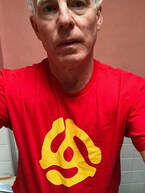 Charles Rammelkamp is Prose Editor for BrickHouse Books in Baltimore and Reviews Editor for The Adirondack Review. A chapbook of poems, Jack Tar’s Lady Parts, is available from Main Street Rag Publishing. Another poetry chapbook, Me and Sal Paradise, was recently published by FutureCycle Press. An e-chapbook has also recently been published online Time Is on My Side (yes it is) –http://poetscoop.org/manuscrip/Time%20Is%20on%20My%20Side%20FREE.pdf KD and other fantastic mags and presses gets a shout-out in this interview of Paul Robert Mullen. Check it out HERE. Thanks, Paul!
How Wally Lost His Thumb and the Boy Scouts Became Cannibals by Al Ortolanireviewed by Charles Rammelkamp “How Wally Lost His Thumb and the Boy Scouts Became Cannibals” Poetry Spartan Press, 2019 $12.00, 132 pages ISBN: 978-1946642882 As the title of Al Ortolani’s collection suggests, this book is a hoot, reminiscent of Jean Shepard’s stories, In God We Trust: All Others Pay Cash and A Fistful of Fig Newtons among them, likewise tales of growing up in the Midwest. Except where Shepard’s characters are forever mired in childhood, Ortolani tells a sort of “coming of age” story as we watch Wally and his friends grow up – or grow older, anyway. For Wally is sort of a perpetual sadsack, even though he is a genuine seeker of truth. The collection is divided into four sections, and through them we watch Wally go from childhood to college to a post-Vietnam version of adulthood. The first section is called “Crayon Sucker,” and in the first poem, by the same name, we see Wally (though not named) as a class clown. The poem ends: His parents learned to accept Cs from their above average, crayon sucking child. Sometimes the Wally poems are told in the first person by Wally himself, sometimes by an unnamed contemporary. A variety of friends come and go. There’s Charlie Miller and Gordon, the Cowboys and Boy Scouts. They go to the carnival, they get into trouble, get into fights; they drive cars; they learn about girls. In “Boys Dig Through Neighbor’s Trash Only to Become Beset by Great Mystery” they learn about menstruation. In “Mama DeBeauty Explains a Necessary But Uncomfortable Aspect of Dude Ranching” Wally and the unnamed narrator of the poem spy on a couple of comely girls only to be caught by their mother. I pointed to Wally and said in shaken desperation, My friend’s in love with your daughter. Mama DeBeauty takes the boys aside and allusively describes the consequences. After a middle section, “Crow,” describes similar coming-of-age drama of the character Johnny Crow, we are back with Wally, now a college student, in the section entitled “Oscar the Lab Skeleton,” which refers to a prank Wally pulls one day with a science-class human skeleton. In this section, Wally discovers drugs and also becomes curious about, well, “the meaning of life,” and so his spiritual journey commences. Gordon and Charlie are back, and Anna and Bambi Alvarez are part of the gang, too. Finally, in “Dancing at the American Legion,” the final section, Wally deals with loss. He’s lost an arm in Vietnam, lost his friends, his home, his family, homeless and hapless but still a seeker. (“Wally Practices Pranayama at the Self-Serve,” “Wally Sings Amazing Grace in an Arkansas Cave.”) In the last poem in the collection, “Wally Smokes a Cigar with Sam Clemens,” that nameless speaker tells us, “The last anybody heard, Wally traveled to northern / Minnesota, sold his Ford, and purchased a rundown / house boat.” He’s about to set off down the Mississippi to New Orleans. How Wally Lost His Thumb and the Boy Scouts Became Cannibals is by turns humorous, tragic, insightful and sad. It’s a good, lyrical adventure in the heartland. Biography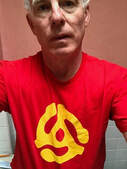 Charles Rammelkamp is Prose Editor for BrickHouse Books in Baltimore and Reviews Editor for The Adirondack Review. A chapbook of poems, Jack Tar’s Lady Parts, is available from Main Street Rag Publishing. Another poetry chapbook, Me and Sal Paradise, was recently published by FutureCycle Press. An e-chapbook has also recently been published online Time Is on My Side (yes it is) –http://poetscoop.org/manuscrip/Time%20Is%20on%20My%20Side%20FREE.pdf |
Book ReviewsWelcome to KD's re-vamped blog, where you'll find book reviews by our editor Matthew Weddig. Archives
August 2023
Categories
All
|
- Home
- About
- Press
-
Issues
- Issue 51
- Issue 50
- Issue 49
- Issue 48
- Issue 47
- Issue 46
- Issue 45
- Issue 44
- Issue 43
- Issue 42
- Issue 41
- Issue 40
- Issue 39
- Issue 38
- Issue 37
- Issue 36
- Issue 35
- Issue 34
- Issue 33
- Issue 32
- Issue 31
- Issue 30
- Issue 29
- Issue 28
- Issue 27
- Issue 26
- Issue 25
- Issue 24
- Issue 23
- Issue 22
- Issue 21
- Issue 20
- Issue 19
- Issue 18
- Serenity
- Issue 17
- The Audio Room
- Issue 16
- Issue 15
- Issue 14
- Play It Again
- Issue 13
- Issue 12
- Issue 11
- Issue 10
- Issue 9
- Issue 8
- Issue 7
- Issue 6
- Hand to Mouth
- Issue 5
- Issue 4
- Issue 3
- Issue 2
- Issue 1
- Submissions
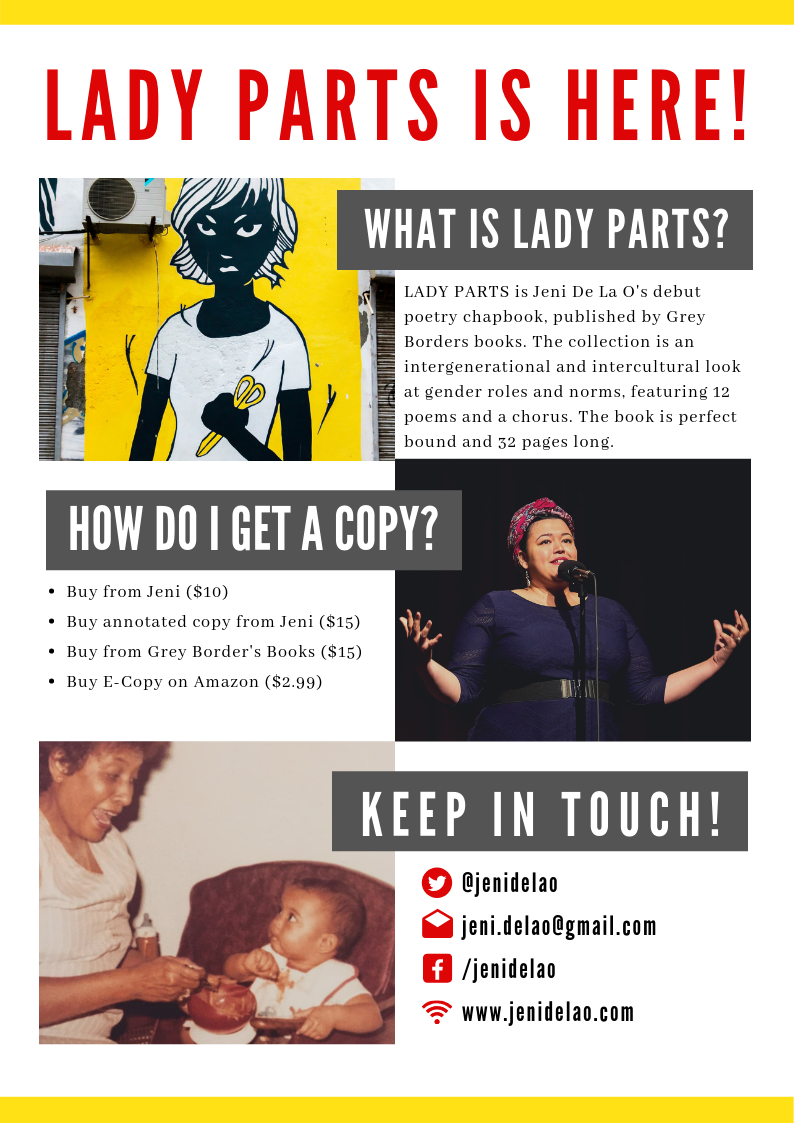
 RSS Feed
RSS Feed
